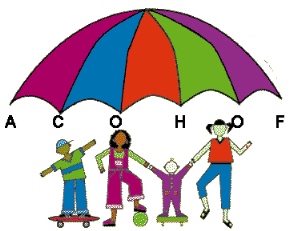 Afoni Children of Hope Foundation-ACOHOF
Afoni Children of Hope Foundation-ACOHOF
Motto: Hope for the Underprivileged
 Afoni Children of Hope Foundation-ACOHOF
Afoni Children of Hope Foundation-ACOHOF
Motto: Hope for the Underprivileged
ACOHOF and Engineers Without Borders (EWB) of Sweden
Since 2015, ACOHOF and Engineers Without Borders (EWB) Sweden have been collaborating extensively to identify a range of areas for growth in Tatum village in the North West Region of Cameroon. They are implementing projects that have broader implications for the underprivileged children that we serve and the community.
Students of EWB Sweden develop innovative and appropriate project solutions and have made relevant contributions towards the sustainable development of Tatum village in the Nkum Council area and its environs. In addition, several students of EWB Sweden have visited the locality either to carry out baseline surveys or to successfully implement designed projects.
ACOHOF and EWB Sweden had collaboratively implemented a good number of projects, including the Solar Cells project at the ACOHOF Family Farm School; the Computer for Schools project at the ACOHOF Family Farm School; and the Water Disinfection Systems (WADIS).
Our collective elaboration and feasibility studies for the Water, Hygiene and Sanitation Project, the Renewable Energy Project, the Rocket Stove project; were compromised by the escalation of the socio-political crisis in the North West and South West Regions of Cameroon.
Water Disinfection System (WADIS)
The Water Disinfection System (WADIS) was realized at the ACOHOF Family Farm School (ACOHOF FFS+) Tatum by Stefan and Gustav of Engineers Without Borders of Sweden. Though WADIS, the Solar Water Disinfection (SODIS) project was established as an effective initiative to enhance the community’s access to safe drinking water in schools and households.
This method has dramatically reduced the prevalence of water-related diseases among ACOHOF FFS+ children, their families, and other community members practising solar SODIS. The Development and Information Systems (DEVICE) was also established at the ACOHOF FFS+ and is being used to improve methods for disinfecting water. In addition, the project has continued to create partnerships with health centres to spread the use of the SODIS method; and continued to inform, educate, and coach community members on the practice of the SODIS method.
COMPUTERS FOR SCHOOLS
In 2017, the "Computers for Schools" project team of Engineers without Borders of Sweden made up of Christian Nacache, Marcus Forsberg, Martin Engquist, Mans Wallentinsson, Marcus Ostgren, and Mikeal Ohlsson designed and realized the installation of a modern computer lab at the ACOHOF Family Farm School (ACOHOF FFS+).
This computer lab has enhanced the teaching and learning process at the ACOHOF FFS+ as it nurtures school children's curiosity and problem-solving skills. It also provides them with a wealth of information beyond what is available in the few textbooks they have and enables them to broaden their knowledge scope and improve performance.
In addition, it enables them to excel in Digital Literacy and allows teachers to conduct online research and supplement their teaching materials to make their classes more interesting.
SOLAR CELLS
Emilia Helander, Anna Bergentz, Ylva Gulberg, David Lingfors, Joakim Nyman, and Hanner Larsson, of the Engineers Without Borders of Sweden Solar Cells Project Team, masterminded the installation of solar energy at the ACOHOF Family Farm School.
The regular supply of electricity in school has gone a long way to significantly improve the quality of education and enhance the children's performance. This has allowed both school children and teachers easy access and use of computers in school. It has allowed teachers to carry out online research and supplement their teaching materials making their classes more interesting.
In addition, it has extended study hours and made night preps very effective, apart from improving the school's security at night.
RENEWABLE ENERGY
Catja Carlson and Anton Agerburg, members of the Renewable Energy Project team of Engineers Without Borders of Sweden, together with the staff of ACOHOF, carried out a feasibility study for the design and establishment of renewable energy in Tatum and its environs. Unfortunately, the implementation of this project was compromised by the socio-political crisis in the North West and South West Regions of Cameroon.
Due to the prevailing insecurity, the project was suspended abruptly. We hope that the crises shall soon be over so that the team returns to continue this project for the interest of the entire community of Tatum.